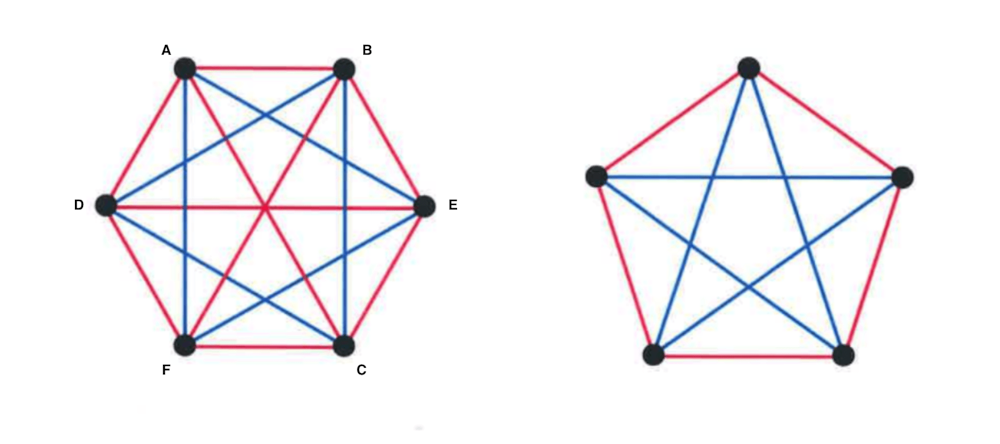Theorem on Friends and Strangers; Why in Any Party of Six People, Either at Least Three of Them Are Mutual Friends, or at Least Three of Them Are Mutual Strangers
Por um escritor misterioso
Descrição
Let’s take a look at Alice first. To her, each one of the other five (Bob, Carol, Dave, Ellen, and Frank) is either a friend or a stranger. Suppose Bob, Dave, and Frank are friends to Alice, and…

The Friendship Theorem - You Always Have 3 Friends Or 3 Strangers At A Party

This math puzzle will help you plan your next party

This math puzzle will help you plan your next party

Correlation, Causation, and Ramsey Theory

Discrete Math for CS Chapter 5: Functions. Discrete Math for CS New Relation Operations: Given R, a relation on A x B, we define the inverse relation, - ppt download

An Interesting Ramsey Theory Riddle

Can 6 People Uncover a Mathematical Certainty? The Surprising Truth!

Theorem on Friends and Strangers. Ramsey Theory and Graham's Number, by Francesco Di Lallo

New maths formula answers long-standing party problem
de
por adulto (o preço varia de acordo com o tamanho do grupo)







